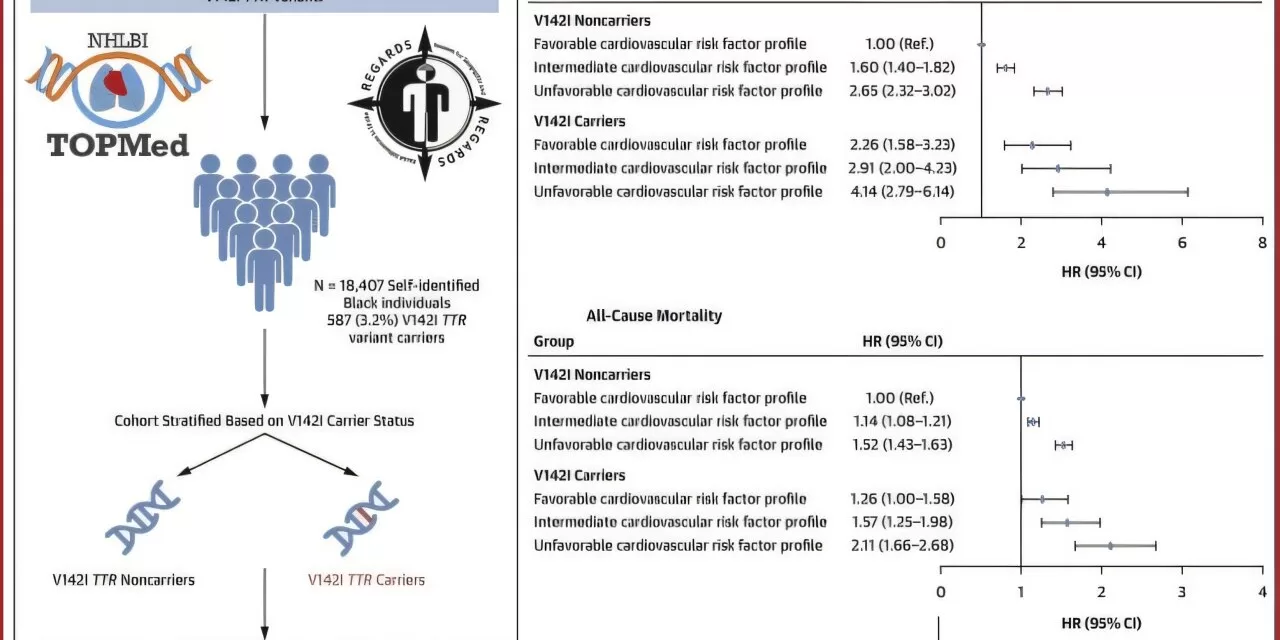January 15, 2025
Researchers at the University of Alabama at Birmingham (UAB) Marnix E. Heersink School of Medicine have uncovered significant findings regarding the management of cardiovascular risk factors for individuals carrying the transthyretin V142I genetic variant, which significantly increases susceptibility to heart failure.
Published in JACC: Heart Failure, the study, led by Dr. Pankaj Arora and Dr. Garima Arora, explored how various cardiovascular risk factors—hypertension, diabetes, obesity, and hypercholesterolemia—could alter the risk of heart failure and mortality among individuals with the V142I variant. This genetic mutation is found in 3–4% of Black individuals in the United States and has been linked to an elevated risk of heart failure, specifically transthyretin cardiac amyloidosis.
The study, which pooled data from over 48,000 participants from the TOPMed program, REGARDS study, and the All of Us Research Program, found that carriers with a favorable cardiovascular risk profile, defined as having zero or one risk factor, exhibited a significantly reduced risk of heart failure compared to those with a higher cardiovascular risk profile, having three or more risk factors.
“This study exemplifies the power of collaboration across institutions and national programs,” said Dr. Pankaj Arora, director of the UAB Cardiogenomics Clinic and lead investigator. “By combining data and expertise from renowned programs like TOPMed, REGARDS, and All of Us, we were able to explore the complex interplay of genetic factors and clinical conditions that shape health outcomes.”
The research highlights that while managing cardiovascular risk factors reduces the risk of heart failure and mortality in V142I variant carriers, it does not completely eliminate the genetic predisposition to these adverse outcomes. This underscores the need for genetic screening and early identification of individuals at risk, along with proactive management of modifiable risk factors to help reduce the burden of heart failure.
Dr. Naman Shetty, first author of the study, emphasized, “Identifying V142I variant carriers early and addressing cardiovascular risk factors can substantially reduce their risk of heart failure, demonstrating how genetics and clinical factors work together to influence health outcomes.”
Dr. Garima Arora, co-investigator, added, “Our work provides new insights into how genetic and environmental factors interact, paving the way for personalized care strategies and targeted interventions for high-risk populations.”
These findings could lead to improved management strategies for hereditary transthyretin cardiac amyloidosis, a condition that disproportionately affects individuals with the V142I variant, suggesting a more tailored, precision medicine approach to care.
For more details, refer to the study published in JACC: Heart Failure (2024). DOI: 10.1016/j.jchf.2024.08.019.












